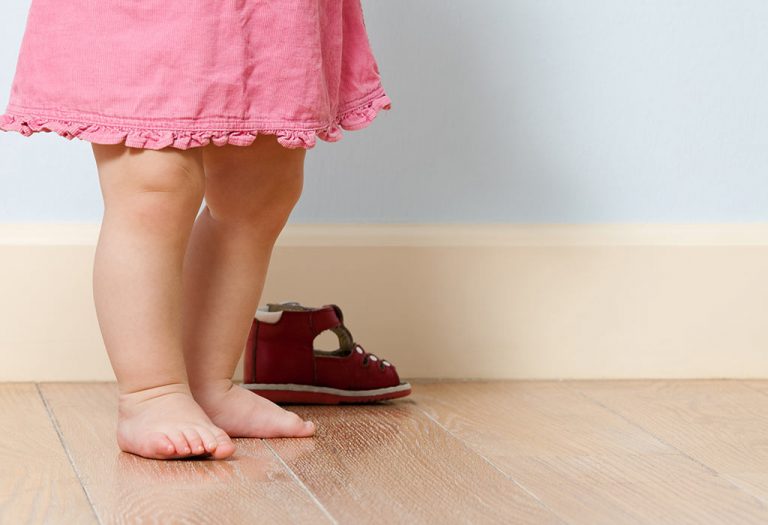Parental Pressure on Children: Signs and Effects
Academic excellence has always been a symbol of pride and status in our society; however, it is a class divide among children that adults drive entirely. It’s bad enough that their future holds a cutthroat world where success is measured by how much money they make; on top of that, undue parental pressure on children to score high marks and show excellence in every subject makes their minds a boiling pot ready to burst.
Parents, of course, envision a bright and happy future for their children, and the knowledge of how competitive it is makes them push their wards to do well in every field. However, growing parental pressure on children’s academic excellence has become a grave concern.
What Is Parental Pressure?
Parental pressure refers to the expectations and demands parents place on their children to achieve certain goals, often related to academics, sports, extracurricular activities, or behaviour. This pressure can stem from parents’ desires for their children to succeed, their unfulfilled ambitions, or societal and cultural expectations (1).
Why Do Parents Put Pressure on Their Children?
The dismal condition of our education system and the swelling volume of applicants each year is a stress point for most parents. Educational institutes always look for the best and brightest students to maintain their rankings, which ultimately percolates to the children through parental pressure. Protecting their child from a lifetime of regrets and heart-breaking rejections is a parent’s prerogative; however, sometimes, they raise the stakes too high for children to cope with.
Social standing is a big cause of parental pressure. Caring more about how the world perceives them, can render parents ignorant about the true talents of their children. It’s important to remember that success and excellence are not one-size-fits-all. Parents often generalise these terms, depending on how others are doing. This can lead to children feeling overwhelmed and underappreciated in areas of their own interests like arts, music, theatre, especially in sports.
Unfortunately, parental pressure in sports is common, ultimately making children give up on their talents. Competitive exams, institutional elitism, and the race for a plush job have created an unhealthy culture in which children are stunted instead of flourishing.
Signs of Parental Pressure on Kids
Though based on good intentions, parental pressure is often mistaken as care and can seriously affect children. A little bit of extra attention can reveal alarming behavioural signs (2):
1. Nightmares
Children often reflect on their fears in sleep. Examination fever or not being able to get sound sleep could be signs of parental pressure.
2. Seclusion & Cheating
Children under stress are more likely to shut everyone out. If a child stops talking about school or ignores important information like mark sheets, examination schedules, or school grades, it could be because they are scared to let their parents down. This fear can make children resort to unhealthy practices like cheating in examinations.
3. Lethargy & Loss of Interest
The constant fear of falling short of parental expectations can be tiring, leaving a child lethargic and disinterested. It is definitely a red flag if your child loses interest in an extracurricular activity that he/she otherwise enjoyed. Losing interest in extracurricular activities could also cause physiological symptoms like stomach pain, headaches, and diarrhoea.
4. Late Hours
Parental pressure can push children into panic mode, keeping them up late into the night to achieve what is expected of them. It often hampers their retention power, making the whole activity futile.
5. Bad Temper
When a well-behaved child suddenly starts to fly off the handle at the slightest instigation, it is time to pay attention to his stress levels. Stress causes anger, and this is true for adults as well as children. If the child feels that his efforts are not good enough for his parents, it can cause a great deal of stress, resulting in a bad temper.
The Effects of Parental Pressure on Children
The signs that your child might be under parental pressure are less prominent than signs of stress in adults. Unlike adults, children are not vocal about these symptoms mostly because they are conditioned into thinking that their failure is causing the stress. Long-term subjugation of children to parental pressure can push them beyond recovery. Here are a few dangerous effects of parental pressure on children:
1. Prone to Mental Disease
Children who go unnoticed while dealing with an internal tussle between expectations and capabilities are more likely to succumb to mental diseases. Students often slip into depression or other diseases related to the mind, not knowing how to deal with it due to constant goal-setting by their parents.
2. Self-Harm
Children, especially during their teens, often resort to self-harming activities to deal with parental pressure. Studies show that children contemplate suicide as an answer to deal with parental disappointment due to low scores in examinations. In India, especially, deaths caused by suicide are unnaturally common among students, and no one needs to look further than the news reports received right after exam results to realise this truth.
3. Low Self-Esteem
Children mostly look at their parents for validation on everything they do, but if they meet with constant criticism from the other side, it most likely will create a negative self-image. This negative perception can transform into self-hate and hinder children from growing into well-adjusted adults.
4. Defensive Attitude
Constant parental pressure can create a defensive attitude in children. Fear of failure can stop them from taking up new projects or completing them. It can create unhealthy defiance in them that can lead to dissatisfied adulthood.
5. Risk of Permanent Injuries
Children who are made to bear the burden of excessive parental pressure while dealing with the physically and mentally taxing requirements of professional sports are more likely to push themselves over the threshold. They tend to ignore the pain and hurt, causing permanent injuries.
How to Encourage Your Child Without Parental Pressure?
The pressure parents put on their children can significantly influence their development and well-being. Encouraging your child without applying undue parental pressure is essential for their healthy development and self-esteem. Here are some strategies to encourage your child positively:
1. Focus on Effort, Not Just Results
Praise your child for their hard work, dedication, and improvement rather than solely on the outcomes. This helps them develop a growth mindset, understanding that effort leads to progress and success (3).
2. Set Realistic and Achievable Goals
Work with your child to set challenging yet attainable goals. Ensure these goals align with their interests and capabilities. This approach prevents overwhelming feelings and fosters a sense of accomplishment when they achieve these targets.
3. Provide a Supportive Environment
Create an environment where your child feels safe to express their feelings, interests, and concerns. Be an active listener and show empathy towards their experiences. This supportive atmosphere helps them feel valued and understood, reducing stress and anxiety.
4. Encourage Decision-Making
Allow your child to make their own choices regarding their activities and interests. Offer guidance and advice, but let them take the lead. This autonomy builds their confidence and teaches responsibility as they learn to make decisions and face the consequences.
5. Celebrate Individual Strengths and Interests
Recognise and celebrate your child’s unique talents and passions, even if they differ from your expectations. Encourage them to pursue what they love, whether academics, sports, arts, or any other.
FAQs
1. How can parental pressure affect the parent-child relationship?
Excessive pressure can strain the parent-child relationship, leading to feelings of resentment and mistrust. Children may feel misunderstood and unsupported, causing emotional distance. Over time, this can erode the bond between parent and child, making open communication and mutual respect more difficult.
2. How does parental pressure contribute to the development of perfectionism in children?
Parental pressure often sets unrealistic standards for children, leading them to develop perfectionistic tendencies. This constant pursuit of flawlessness can result in heightened anxiety, fear of failure, and a diminished sense of self-worth.
3. How does parental pressure affect students’ academic performance?
Parental pressure on students’ academic performance can have positive and negative effects. While some students may feel motivated to excel under their parents’ expectations, excessive pressure can lead to detrimental outcomes. Students may experience heightened stress, anxiety, and a fear of failure, ultimately hindering their ability to perform well academically (4).
4. How can parents recognise the fine line between healthy encouragement and detrimental pressure in their parenting approach?
Recognising the fine line between healthy encouragement and detrimental pressure requires mindfulness and self-awareness on the part of parents. It involves paying attention to their child’s cues, respecting their needs and limitations, and adjusting their approach. Open communication, empathy, and a willingness to prioritise their child’s well-being over external expectations are essential in finding this balance.
Parental pressure on students can significantly impact their academic performance, mental health, and overall well-being. As a parent, you must create a healthy space for your child to flourish and excel in life. You should discover your child’s strengths and guide them in enhancing their talents. Each child doesn’t need to achieve academic excellence. Success is inevitable if you give your child the required support to pursue their dreams in whichever field they want without instilling the fear of failure.
References/Resources:
1. Moneva. J. C, Moncada. K. A; Parental Pressure and Students Self-Efficacy; ResearchGate; https://www.researchgate.net/publication/339096621_Parental_Pressure_and_Students_Self-Efficacy_1; January 2020
2. Impact Of Parental Pressure On Creativity And Self Efficacy Of Young Adults; IJCRT; https://ijcrt.org/papers/IJCRT2306199.pdf; June 2023
3. How to Motivate Children: Science-Based Approaches for Parents, Caregivers, and Teachers; The Center on the Developing Child; https://developingchild.harvard.edu/resources/how-to-motivate-children-science-based-approaches-for-parents-caregivers-and-teachers/
4. Srivastava. A; Impact of Parental Pressure on Academic Achievement; ResearchGate; https://www.researchgate.net/publication/344137451_Impact_of_Parental_Pressure_on_Academic_Achievement
How to Raise a Tech Savvy Child?
Parenting an Overly Competitive Child
Habits That Parents Must Quit for Their Children
Why You Should Stop Comparing Your Kid to Others
Was This Article Helpful?
Parenting is a huge responsibility, for you as a caregiver, but also for us as a parenting content platform. We understand that and take our responsibility of creating credible content seriously. FirstCry Parenting articles are written and published only after extensive research using factually sound references to deliver quality content that is accurate, validated by experts, and completely reliable. To understand how we go about creating content that is credible, read our editorial policy here.













.svg)
















